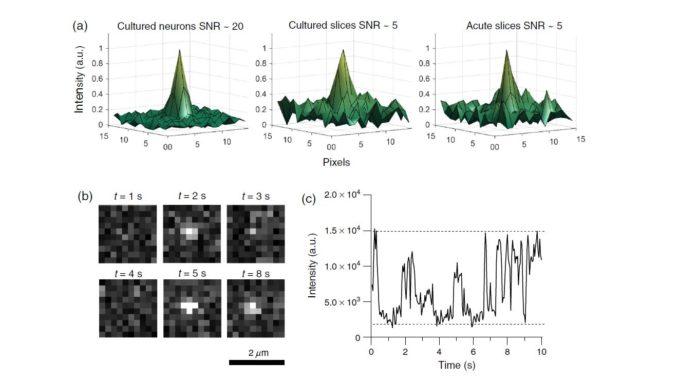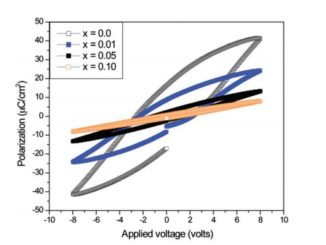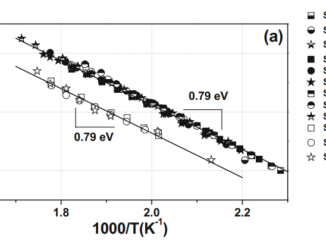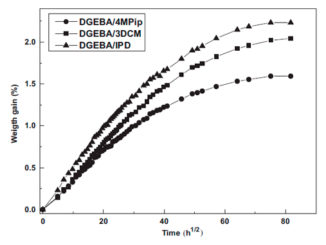
Single nanoparticle tracking of N-methyl-D-aspartate receptors in cultured and intact brain tissue
Abstract: Recent developments in single-molecule imaging have revealed many biological mechanisms, providing high spatial and temporal resolution maps of molecular events. In neurobiology, these techniques unveiled that plasma membrane neurotransmitter receptors and transporters laterally diffuse at the surface of cultured brain cells. The photostability of bright nanoprobes, such as quantum dots (QDs), has given access to neurotransmitter receptor tracking over long periods of time with a high spatial resolution. However, our knowledge has been restricted to cultured systems, i.e., neurons and organotypic slices, therefore lacking several aspects of the intact brain rheology and connectivity. Here, we used QDs to track single glutamatergic N-methyl-D-aspartate receptors (NMDAR) in acute brain slices. By delivering functionalized nanoparticles in vivo through intraventricular injections to rats expressing genetically engineered-tagged NMDAR, we successfully tracked the receptors in native brain tissue. Comparing NMDAR tracking to different classical brain preparations (acute brain slices, cultured organotypic brain slices, and cultured neurons) revealed that the surface diffusion properties shared several features and are also influenced by the nature of the extracellular environment. Together, we describe the experimental procedures to track plasma membrane NMDAR in dissociated and native brain tissue, paving the way for investigations aiming at characterizing receptor diffusion biophysics in intact tissue and exploring the physiopathological roles of receptor surface dynamics. (C) The Authors. Published by SPIE under a Creative Commons Attribution 3.0 Unported License. Distribution or reproduction of this work in whole or in part requires full attribution of the original publication, including its DOI.
Author(s): Varela, JA; Ferreira, JS ; Dupuis, JP; Durand, P; Bouchet, D; Groc, L
NEUROPHOTONICS
Volume: 3 Published: OCT-DEC 2016
PDF Single nanoparticle tracking of N-methyl-D-aspartate receptors in cultured and intact brain tissue
DOI: 10.1117/1.NPh.3.4.041808




